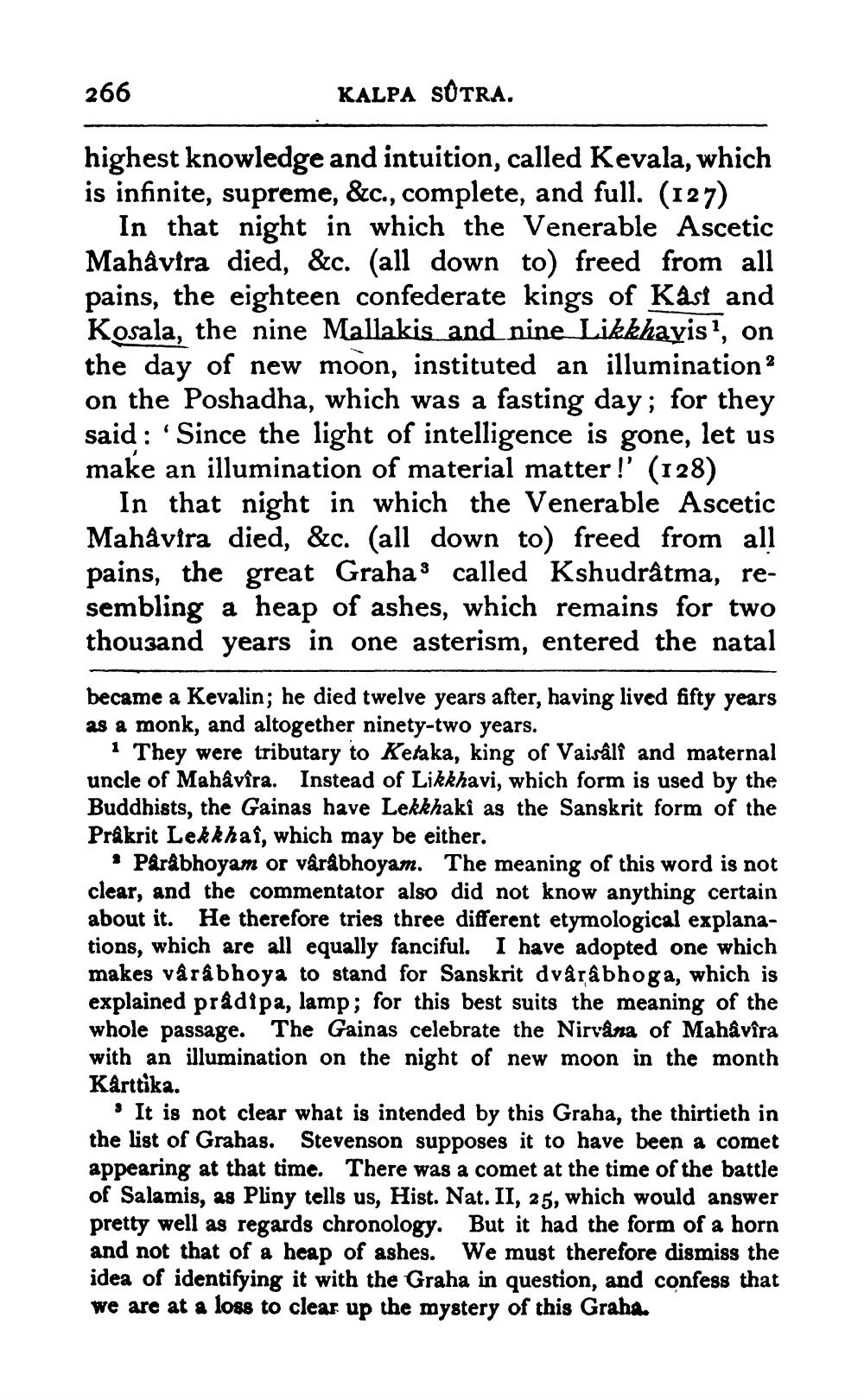________________
266
KALPA SÚTRA.
highest knowledge and intuition, called Kevala, which is infinite, supreme, &c., complete, and full. (127)
In that night in which the Venerable Ascetic Mahavira died, &c. (all down to) freed from all pains, the eighteen confederate kings of Kast and Kosala, the nine Mallakis, and nine Likkhayis?, on the day of new moon, instituted an illumination ? on the Poshadha, which was a fasting day; for they said : Since the light of intelligence is gone, let us make an illumination of material matter!' (128)
In that night in which the Venerable Ascetic Mahavira died, &c. (all down to) freed from all pains, the great Grahas called Kshudrâtma, resembling a heap of ashes, which remains for two thousand years in one asterism, entered the natal
became a Kevalin; he died twelve years after, having lived fifty years as a monk, and altogether ninety-two years.
1 They were tributary to Keraka, king of Vaisálf and maternal uncle of Mahâvîra. Instead of Likkhavi, which form is used by the Buddhists, the Gainas have Lekkhaki as the Sanskrit form of the Prakrit Lekkhaî, which may be either.
* Parabhoyam or vârâbhoyam. The meaning of this word is not clear, and the commentator also did not know anything certain about it. He therefore tries three different etymological explanations, which are all equally fanciful. I have adopted one which makes vârá bhoya to stand for Sanskrit dvârâbhoga, which is explained prädipa, lamp; for this best suits the meaning of the whole passage. The Gainas celebrate the Nirvana of Mahâvîra with an illumination on the night of new moon in the month Karttika.
It is not clear what is intended by this Graha, the thirtieth in the list of Grahas. Stevenson supposes it to have been a comet appearing at that time. There was a comet at the time of the battle of Salamis, as Pliny tells us, Hist. Nat. II, 25, which would answer pretty well as regards chronology. But it had the form of a horn and not that of a heap of ashes. We must therefore dismiss the idea of identifying it with the Graha in question, and confess that we are at a loss to clear up the mystery of this Graha.




